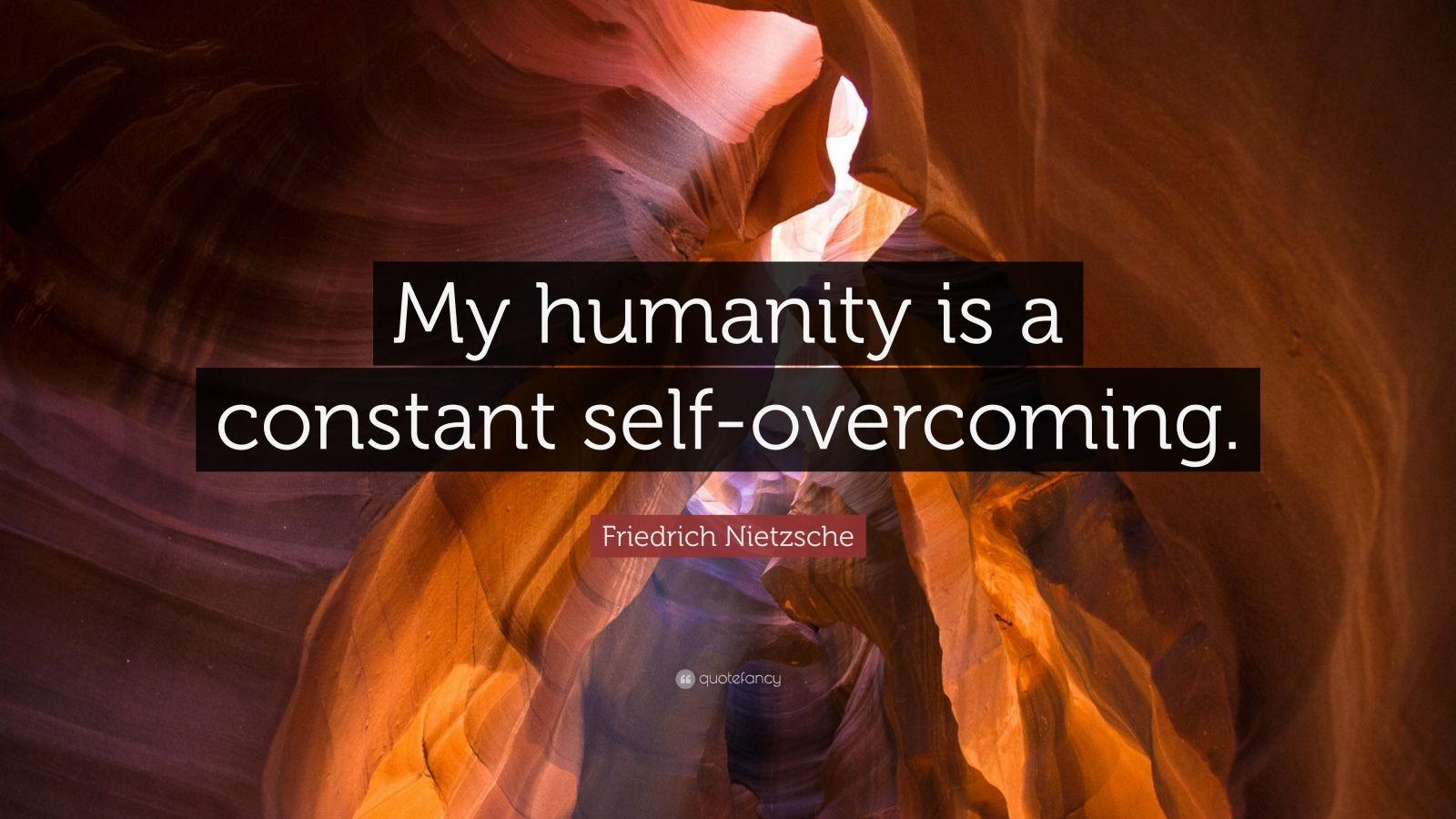Friedrich Nietzsche, a renowned philosopher and cultural critic, left an indelible mark on the world of existentialism through his profound insights and thought-provoking ideas. Nietzsche’s philosophical roadmap to self-mastery remains as relevant today as it was during his lifetime, providing invaluable guidance for those seeking to navigate the complexities of human existence. In this article, we explore Nietzsche’s profound exploration of existentialism, unraveling the essence of his philosophical framework and delving into key concepts that can aid individuals in their pursuit of self-actualization and personal growth. Through an in-depth analysis of Nietzsche’s works, we endeavor to shed light on the significance and practical applications of his philosophical roadmap to self-mastery in our contemporary society.
Exploring Nietzsche’s Philosophy of Self Mastery: A Comprehensive Guide to Existentialism
In this comprehensive guide, we delve into Friedrich Nietzsche’s philosophy of self-mastery and its connection to existentialism. Nietzsche believed that individuals have the power to shape their own lives and overcome societal constraints. Through his works such as “Thus Spoke Zarathustra” and “Beyond Good and Evil,” he explored the concept of the “Übermensch” or “superman,” an individual who rises above conventional morality and embraces their own values and desires. This guide takes you through Nietzsche’s key ideas and examines how they contribute to existentialist thought, guiding readers on a journey of self-discovery and empowerment.
Nietzsche’s Path to Self-Realization: Decoding Existentialist Concepts
Decoding Nietzsche’s concepts is essential to understanding the path to self-realization as an existentialist. Nietzsche believed that individuals must confront the inherent meaninglessness and absurdity of existence to truly achieve self-realization. By embracing the concept of eternal recurrence, one can fully accept the transience of life and make conscious choices. Through an exploration of themes like the will to power, nihilism, and the death of God, this guide unravels Nietzsche’s complex philosophy and offers insights into how individuals can navigate existentialist concepts to discover their true selves.
Unveiling the Core Principles of Nietzschean Existentialism: A Journey towards Personal Fulfillment
Embarking on a journey towards personal fulfillment, Nietzschean existentialism unveils core principles that can guide individuals to a more authentic and meaningful existence. Nietzsche rejected traditional values and argued for the importance of self-expression and individual will. He saw suffering as a necessary part of personal growth and believed that embracing suffering could lead to personal transformation. This guide explores Nietzsche’s core principles, such as the revaluation of values, the concept of the eternal return, and the affirmation of life, providing readers with a roadmap to achieving personal fulfillment through Nietzschean existentialism.
- Nietzsche rejected traditional values and argued for self-expression and individual will
- Suffering is a necessary part of personal growth
- Embracing suffering can lead to personal transformation
- Core principles include the revaluation of values, the eternal return, and the affirmation of life
Nietzsche’s Roadmap to Self-Mastery: Understanding the Fundamentals of Existentialist Thought
Understanding the fundamentals of existentialist thought is crucial for mastering the self according to Nietzsche. Nietzsche believed that individuals must free themselves from societal norms and create their own values and purpose. He emphasized the importance of self-reflection, self-responsibility, and embracing the full range of human emotions. By analyzing Nietzsche’s works, including his critique of morality and his concept of the will to power, this guide unravels the roadmap to self-mastery. It provides readers with a deeper understanding of existentialist thought and practical strategies for cultivating self-awareness and personal growth.
Mastering the Self: Deconstructing the Essence of Existentialism through Nietzsche’s Perspectives
To truly master the self, it is essential to deconstruct the essence of existentialism through the perspectives of Friedrich Nietzsche. Nietzsche challenged traditional notions of self and advocated for an individualistic approach to life. He believed that individuals possess inherent power and the ability to shape their own destinies. By exploring Nietzsche’s perspectives on topics such as the eternal recurrence, the importance of self-creation, and the concept of the will to power, this guide provides readers with the tools to deconstruct existentialism and harness its principles for personal growth and self-mastery.
Friedrich Nietzsche
Friedrich Nietzsche was a German philosopher, cultural critic, poet, and scholar who lived from 1844 to 1900. He is widely known for his profound influence on Western philosophy and existentialism.
Self-Mastery
Self-mastery, also referred to as self-discipline or self-control, is the ability to have control over one’s emotions, thoughts, and behaviors. It entails gaining control over one’s desires, impulses, and reactions to external stimuli.
Existentialism
Existentialism is a philosophical movement that emphasizes individual existence, freedom, and personal responsibility. It explores the meaning and purpose of life, often delving into themes such as individuality, authenticity, and the search for meaning in an absurd world.
Nietzsche’s Philosophy
Nietzsche’s philosophy revolves around various concepts, including the will to power, the death of God, the Übermensch (superman or overman), and the eternal recurrence. He criticized traditional moral values and sought to create a philosophy that embraced life’s inherent suffering and uncertainty.
Achieving Self-Mastery
While Nietzsche did not explicitly write a guide on achieving self-mastery, his philosophy can be interpreted as an exploration of personal growth and self-transformation. Some key ideas that can be applied to achieving self-mastery include embracing suffering, confronting one’s fears, cultivating individuality, and striving for personal authenticity.
Nietzsche’s Influence on Existentialism
Nietzsche’s ideas, particularly his exploration of the authentic individual and the rejection of societal norms, greatly influenced the development of existentialism. Existentialist thinkers such as Jean-Paul Sartre and Albert Camus drew inspiration from Nietzsche’s concept of the Übermensch and his emphasis on personal freedom and responsibility.
Books by Nietzsche
Some of Friedrich Nietzsche’s most well-known works include “Thus Spoke Zarathustra,” “Beyond Good and Evil,” “On the Genealogy of Morality,” and “Twilight of the Idols.” These books delve into his philosophical ideas and can be valuable resources for understanding his philosophy and its potential relation to self-mastery and existentialism.

Nietzsche’s Roadmap to Self-Mastery
In conclusion, Friedrich Nietzsche’s roadmap to self-mastery offers valuable insights into the essence of existentialism. His philosophical teachings encourage individuals to embrace their own unique existence and take responsibility for shaping their lives. Nietzsche emphasizes the importance of self-reflection and self-discovery, advocating for the development of one’s own values and the rejection of societal norms and expectations. By deconstructing conventional beliefs and striving for authenticity, individuals can navigate their personal journeys towards self-actualization and ultimate fulfillment. Nietzsche’s philosophy serves as a guide to unraveling the essence of existentialism, providing a framework for individuals to master their own destinies and lead meaningful lives.
